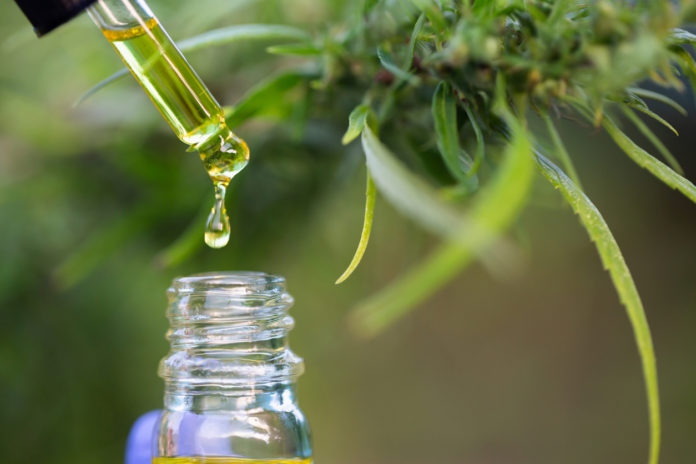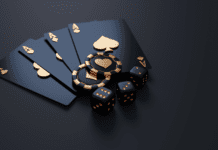Heard about CBD, and now you want to learn more about this “miraculous” natural remedy? This article explores seven fun facts about CBD that will help you learn more about CBD.
CBD seems to be in the mind of everyone lately. Medical specialists, Internet users, pet owners, documentary directors of Netflix, everybody is talking about CBD these days. Besides that, we’re now seeing it being added to all types of products from skincare products, edibles, drinks, toothpicks, shampoos, coffee, tea, and many others.
But why is everyone so hyped about CBD out of a sudden?
CBD, a term that stands for cannabidiol, is one of the natural compounds found in cannabis and hemp plants. Several medical studies have found strong evidence that CBD may be a beneficial natural remedy for various medical conditions. More precisely, researchers believe that CBD can help alleviate the symptoms of medical conditions like anxiety, depression, acne, chronic pain, epilepsy, cancer-related symptoms, high blood pressure. Besides that, CBD has also been shown to be an effective treatment for substance abuse.
What’s more, 2019 data from Gallup revealed that 1 in 7 Americans are using CBD in some form for a medical condition they want to treat. As CBD use increases and it is present wherever you’re turning your head, it’s only natural to be more curious about this natural therapeutic remedy.
Here are seven fun facts about CBD that you probably never heard about before:
1. CBD was first discovered in the 1940s
It’s almost a century since CBD has started to gather attention from health experts.
The cannabis plant has been used as therapeutical medicine for thousands of years, mainly to treat pain. However, it wasn’t before the 1940s when researchers first discovered CBD in the cannabis plant separately from the other 85 compounds that exist in the plant.
What’s more, it took 20 more years since researchers also successfully isolated CBD from the other ingredients of the cannabis plant.
Queen Victoria used CBD
Another example of the historical use and popularity of CBD is that of Queen Victoria. It seems that Queen Victoria, the ruler of England from 1837 to 1901, used cannabis high in CBD to relieve menstrual pain.
2. CBD doesn’t make you high
There’s a vast misconception related to whether or not CBD has intoxicating effects. The truth is that CBD doesn’t give you the “high” feeling.
Now, this misconception that CBD could get people high comes from the fact that CBD is a compound found in Marijuana, a plant associated with the feeling of “high.” However, what’s intoxicating people when consuming cannabis is another compound found in the plant called THC.
In fact, researchers have found that CBD can actually work as a blocker of the intoxicating effects of THC, which is why this ingredient is used as a treatment for substance abuse.
3. CBD is psychoactive
Yes, CBD is psychoactive. However, this is different from being intoxicating.
Just in case you didn’t know, coffee also falls in the category of psychoactive substances. However, it doesn’t make you “high,” right? The same goes for CBD.
CBD isn’t intoxicating but is psychoactive as it has a specific impact on the central nervous system, on the CB1 and CB2 receptors in the brain. This natural remedy is somehow mood-altering thanks to its antidepressant properties, which is why medical experts often recommend it as a natural treatment option for depression and anxiety.
4. Not all types of CBD are easy to buy
First things first, find out that CBD isn’t illegal. So, no matter in which state you live, you can legally buy and consume CBD.
However, for CBD to be legal in states where Cannabis use isn’t legal, the products need to contain no more than 0.3% THC. In states where medicinal and recreational marijuana use is legal, you can also purchase CBD products containing a more significant THC percentage.
What’s more, in states where marijuana production is legal, you’ll be able to find marijuana-derived CBD. In contrast, in states where cannabis is illegal, you’ll only find hemp-derived CBD products such as the ones from https://purehempfarms.com.
So, depending on where you live, you can purchase CBD extracted from the hemp plant or cannabis plant.
5. CBD can interact with several systems in the body
This may be the best explanation why CBD seems to be a miraculous remedy that can help with very different medical conditions.
CBD seems to have a very complex way of interacting with different systems in our bodies. More precisely, CBD interacts with our bodies through the endocannabinoid system that includes different receptors which help regulate a number of functions and processes in the body. Receptors of the endocannabinoid system play a role in sleep, mood, appetite, memory, and even reproduction and fertility.
Besides that, researchers have found that CBD can help reduce the absorption of the body’s pain-regulating endocannabinoid anandamide. For this reason, researchers concluded that CBD might have pain-relieving properties.
6. FDA actually approved a CBD spray for treating epilepsy
Some people still view CBD’s benefits as a marketing hype that isn’t backed by science. However, this isn’t true. There are several clinical studies that show this natural remedy’s potential to help with various medical conditions.
Back in 2018, the Food and Drug Administration actually approved a CBD oral spray as a treatment for seizures given by two rare forms of epilepsy.
Various clinical studies have found that CBD’s ability to impact the endocannabinoid system can mean that this compound has neuroprotective properties.
7. CBD dosing isn’t an exact science for everybody
The CBD dose that works for your best friend won’t necessarily also work the same for you. That’s because the right dose can depend on several factors, from the type of product you use to what condition you’re treating and your body’s particular requirements.
What’s more, the correct dose of CBD that works for you can also depend on the genetic mutations of your cannabinoid receptors which can influence how the body reacts to the compound. In other words, two people can react differently to taking the same dose of CBD.
Finding the correct CBD dosage for you is a matter of trial and error.









